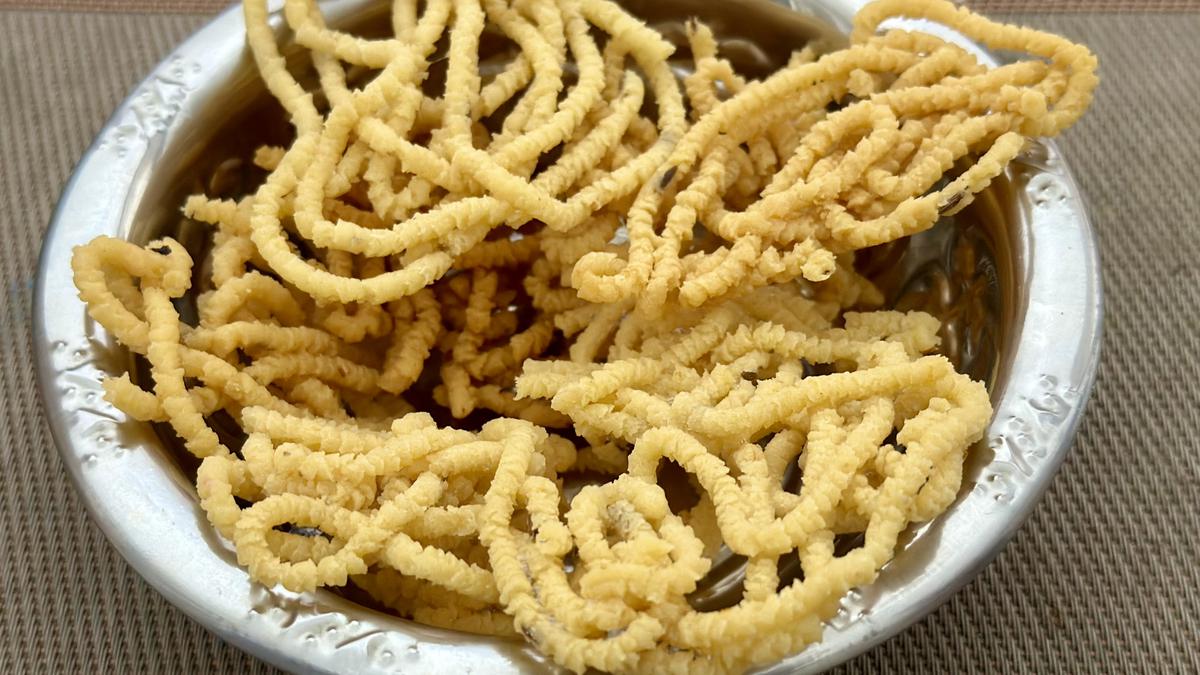
The making of Deepavali murukku, a festival staple in Tamil households
The Hindu
The tradition of making murukku for Deepavali: Mother soaks rice/chillies, grinds, adds roasted gram, spices, butter.
In our household, Deepavali arrives when my mother soaks rice and red chillies for murukku. This is a yearly tradition in which mother makes a mountain of the snack that lasts us a minimum of 10 days after the festivities. The process is labourious and several extra hands are needed because of the sheer quantity. Every year, when she stands in front of the stove, sweating it out over two iron woks filled with oil, she swears she will make lesser the next year. But invariably, the usual quantity persists: two kilograms of idli rice and one kilogram of roasted gram.
How else would she be able to hold on to the old-world practice of sharing food with the neighbourhood? “What’s a festival when you share store-bought stuff?” she would ask, even as neighbours would drop by with sweet boxes in glitter wrap.
Murukku-making takes up half the day and the entire household prepares for the big day. Mother soaks the rice before her morning tea, adding four or five dried red chillies in a separate bowl.
Lunch is a simple affair on murukku day since none of us wants to waste our energies on cooking. After lunch, the process begins. Familiar sounds fill the household: the steady hum of the grinder, followed by the whirr of the mixer.
She first introduces the soaked chillies with a handful of rice; once they are ground to a paste, she adds the rest. To the creamy white dough, she adds powdered roasted gram (pottukadalai). “The batter’s consistency is everything,” she says. “It shouldn’t be too thick, neither runny.” This dough is further embellished for flavour with cumin seeds, asafoetida powder, salt, and dollops of butter. When it comes together, the dough smells delicious; it is buttery, light and even nutty from the roasted gram.
To me, this is the smell of Deepavali. It evokes the rush of excitement of days filled with sweets, mutton curry, new clothes and firecrackers.
Then comes the crucial component: her almost 40-year-old murukku press made of rosewood. Every time the deep-brown contraption is brought out, she brags about how her mother made an experienced carpenter from Karaikudi customise it when she got married. It continues to be sturdy despite being weathered. Next, she spreads an old white dhoti on the kitchen counter: the canvas on which the murukku will be pressed.

In a study published in the journal Mammalian Biology on December 23, 2024, researchers compared the calls of Asian elephants based on their age, sex, and behaviour. They found the duration of trumpets remained fairly consistent across all age classes for both male and female Asian elephants but roars and roar-rumbles got longer with age.












